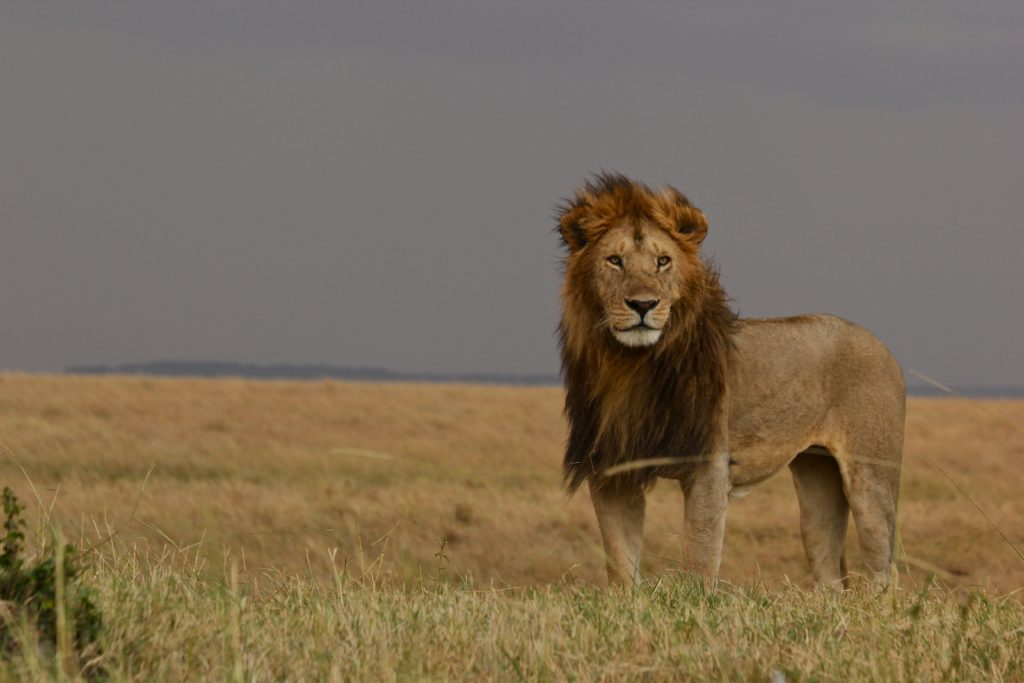The shift of focus
By Tony Reumerman – Trainer & Guide
A lion is totally unaware that a man is hot on its tracks.
Searching for the rest of the pride, the lion has been prowling most of the night and is quickly tiring, ready to rest up in the shade of a large Umbrella thorn tree. Without warning the lion is unexpectedly alerted, it suddenly turns, intently looking over its shoulder – a Maasai man stands motionless in the dark shadows within a stone’s throw distance from the magnificent beast.
It glares into his direction, waiting alertly for the cause of the alarm to emerge from the thicket.

After an uncomfortably long wait for the man the lion appears to be content that nothing is amiss and lays down for what will be an extended siesta. The man waits patiently for the lion to doze off and eventually, stealthily and very slowly retreats back; his goal – to take his guests back to the lion in his safari vehicle for a prime viewing opportunity.
Cultural change and conservation
Fifty years ago this would’ve been a different scenario – with a ‘platoon’ of daunting Maasai warriors emerging from the thicket and eventually slaying the feline cattle killer. This traditional practice and many others are no longer possible as rural areas have been absorbed by modern technology, media, communications, education and other cultures. With all of this imminent cultural change, a shift towards responsible tourism with cultural involvement in neighbouring conservation areas is providing lifelines for local communities who have been left behind in the technological boom. These conservation practices are providing sustainable livelihoods and cultural pride for local tribes in areas that neighbour national parks and wildlife management areas.
Reuben, the Maasai man, has wanted to be a safari guide since he was a boy; his dreams have come true as he utilises skills taught by his father and other elders from those early lion hunting days. He now conducts safaris as a proud Maasai, he shares his cultural traditions, he actively discusses the importance of conservation with his guests and he delights in tracking lions. It has been a long time since he last drank a traditional mixture of cow blood and milk but he fondly remembers the rituals and ceremonies when he was a boy. Many tourists travelling to Tanzania and Kenya are not only drawn by ‘The Great Migration’ but are also intrigued by the traditional pastoral life style and rich culture of the legendary Maasai. In many ways tourism in this region has emphasised the importance and value of recognising the local cultural heritage.
Both the African Lion and the Maasai culture are under serious threat as the region becomes influenced by development and technological growth. This is evident as wild areas and rural tribal lands are being pressurised by urban sprawl with a resultant loss of cultural and natural diversity.
The shift of focus towards sustainable tourism and neighbouring community involvement will no doubt have untold benefits for the survival of both of these epic African icons.
The best way to contribute to the preservation of thesecommunities and ecosystems is to travel to these areas.Get in touch with your trusted Travel Agent or make an enquiry with us today.
The post The shift of focus appeared first on Asilia Africa.






